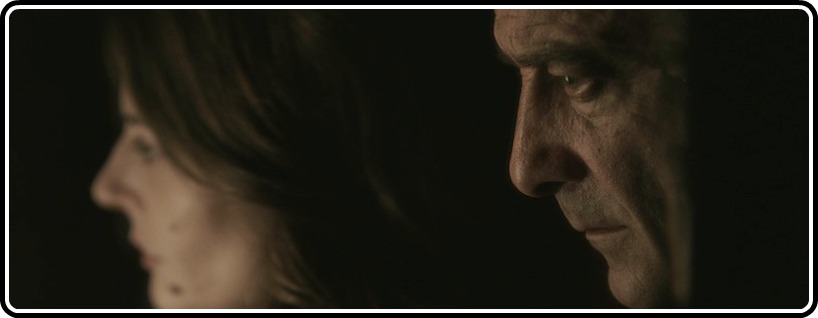
Now matter how much is revealed in Claire Denis’ nocturnal new film, Bastards, it seems like something is always being held back, lending the film a forcefully mysterious quality that remains enigmatic throughout. Denis flashes back and forward to show us constantly shifting narrative strands involving a particular family’s struggles, pouring on heavy emotions and even heavier secrets that remain hidden despite all the ingredients trying to add themselves up. Many will find the way the gradually fragmented plot thickens to be a laborious and insubstantial nuisance, but the brooding sense of melancholy at play here will leave all of its viewers undoubtedly more stunned than confused.
Despite it’s disparately divulged details Bastards is ostensibly a revenge drama, opening on the darkly foreboding and unclear aftermath of a man’s suicide intercut with who we later find out is the man’s naked daughter Justine (Lola Créton) incoherently wandering the streets of Paris. These strange events lead us to Justine’s mother Sandra (Julia Bataille) who is too distraught to deal with the situation at hand and she soon calls up her brother Marco (the gruff and permanently tanned Vincent Lindon), a solitary ship captain and divorcee with two daughters of his own who takes a leave of absence to investigate these shady happenings.
We soon passively learn basic information about the bankruptcy of the family’s once-prosperous shoe business Sandra controlled with her husband that was run into the ground by a big-shot businessman and loan shark named Edouard Laporte (Michel Subor). Marco then cashes in his life insurance, sells his car and all his possessions, and secretly moves into the luxurious apartment above the love-pad where Laporte shacks up with his beautiful mistress Raphaelle (Chiara Mastroianni) and their young son. Though specifically unstated, the first step in Marco’s revenge plan on Laporte involves a newly begun affair with Raphaelle, though we are unaware of how he wants his plan to fully pan out. Through a muddled combination of his personal familial failings and increasingly stalkerish feelings towards Raphaelle he falls in love, compromising the callous foundation behind his scheme. Things begin to unravel even further for Marco and for his family from there, including the increasingly disturbing divulgence of Justine’s sordid history with drugs and sexual abuse.
What follows is a gloomy portrait of unspeakable acts perpetuated by manipulative men that play out via Denis’ vague narrative threads. Lindon does well as the craggy-faced withdrawn detective figure, giving the audience a reason to be convinced by his enigmatic investigation but also believing in the flaws that lead to his undoing. Pervs will have their interests piqued by the healthy dose of nudity from Créton—who barely speaks one full line of dialogue the whole movie—but they will be remiss to find that, considering her character’s actions, much of it is purposefully the unsexiest depiction of the female body ever. This potential expectation shows how deviously clever Denis’ casting choice really is, bearing in mind how Créton is among the most coveted and nubile French actresses around now. Perhaps the best of the bunch is Mastroianni’s conflicted mistress character whom we begin to sympathize with because of her performance so much so that we—and Marco—easily lose track of where her allegiance lies, especially given Denis’ only throughline of familial deceit.
I can’t imagine the backlash that would be thrown at this film if a man directed it, though shades of the shadowy underworld of David Lynch’s Blue Velvet come to mind. On the surface its treatment of women is borderline offensive, but the depths to which the women are put are explicitly caused by the despicable reactions and hostile influence of some really terrible men. Whether or not you can put up with these bleak images through a potentially half-formed narrative devoid of redemption will largely estimate your opinion of Bastards. Though some may be put off, I found the film genuinely haunting even if the parts may not completely add up to a satisfying whole.


